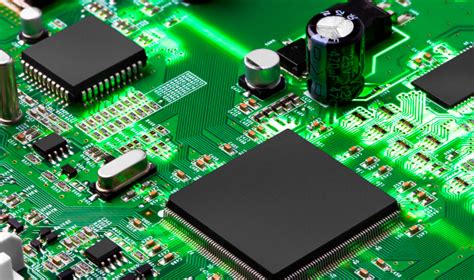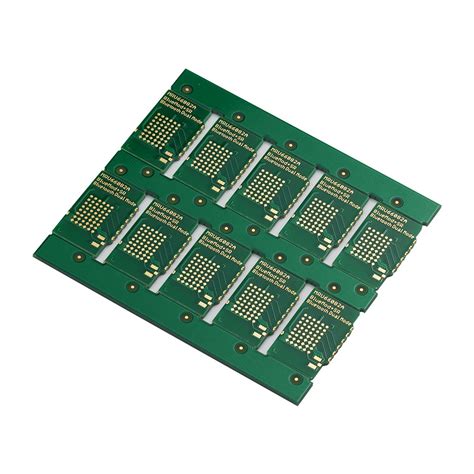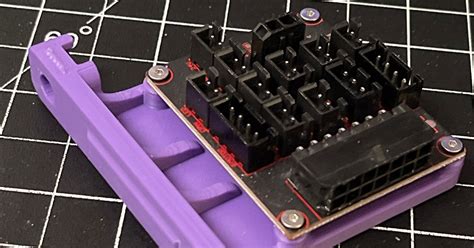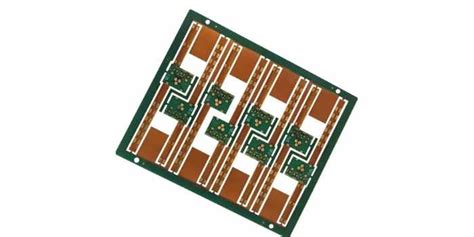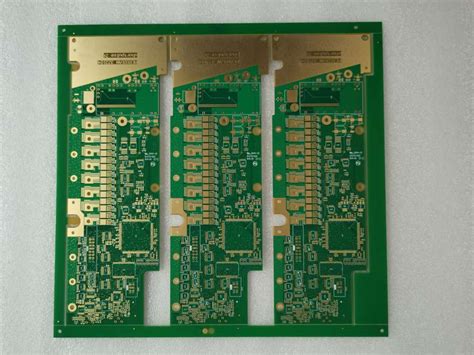Top Electronic Circuit Board Manufacturers Revolutionizing Tech
Key Takeaways
In the dynamic world of pcb manufacturing, understanding the innovations and practices that top pcb manufacturing companies employ can significantly enhance your insights into the industry. These companies not only focus on cutting-edge technology but also prioritize quality assurance to ensure that every circuit board meets stringent standards. The efficiency of production methods is crucial, as it directly impacts the pcb manufacturing cost and overall profitability of your pcb manufacturing business. By adopting streamlined processes, leading manufacturers reduce waste and expedite delivery times, which positively influences their competitive edge in the market. Moreover, the impact of electronic circuit boards on modern technology is profound, transforming everything from consumer electronics to medical devices. As you explore this landscape, keep an eye on emerging trends and sustainable practices that are shaping the future of electronics. Understanding these facets empowers you with the knowledge to navigate and innovate within this increasingly complex field.
Innovations Shaping the Future of Electronic Circuit Boards
As you delve into the realm of pcb manufacturing, it becomes evident that the landscape is rapidly evolving. Leading pcb manufacturing companies are spearheading initiatives that blend innovation with practicality. Emerging technologies such as flexible circuits, 3D printed electronics, and the integration of IoT capabilities into circuit designs are setting new standards. These innovations not only enhance the performance and reliability of electronic devices but also significantly reduce the pcb manufacturing cost through streamlined processes.
Consider how advancements like automated assembly lines and AI-driven design software are reshaping efficiency in production. These tools enable manufacturers to lower waste, optimize materials, and ultimately drive down costs, fostering a competitive environment in the pcb manufacturing business sector.
Here is a table summarizing key innovations in electronic circuit boards:
| Innovation | Description | Impact on Manufacturing |
|---|---|---|
| Flexible Circuits | Thin, bendable circuits that fit complex geometries | Reduced weight and size |
| 3D Printed Electronics | Layered printing technology for rapid prototyping | Lower lead times |
| IoT Integration | Smart features embedded within PCB designs | Enhances connectivity |
| Advanced Materials | Use of high-frequency and lightweight materials | Improved durability |
“Incorporating new technologies not only leads to better products but can also revolutionize how we approach PCB design and manufacturing.”
By keeping pace with these changes, you position yourself at the forefront of electronic circuit board advancements—driving innovation while ensuring your processes remain cost-effective. Understanding these transformations will empower you to make informed decisions whether you’re an industry veteran or an aspiring professional in pcb manufacturing.
The Role of Quality Assurance in PCB Manufacturing
Quality assurance plays a crucial role in PCB manufacturing, significantly influencing your choices when selecting PCB manufacturing companies. By ensuring that electronic circuit boards meet strict standards and specifications, these companies help mitigate risks associated with defects that could lead to product failures in various applications. The process of maintaining high-quality standards often involves rigorous testing methodologies and consistent monitoring throughout production. This not only impacts the PCB manufacturing cost but also reflects on the reliability and performance of the final product. As such, investing in robust quality assurance practices is essential for any PCB manufacturing business aiming to stay competitive. Ultimately, this commitment to quality guarantees that end-users can rely on the performance of their electronic devices, thereby reinforcing your trust in these manufacturers for future projects.
Efficiency in Production: Strategies from Top Manufacturers
In the realm of pcb manufacturing, efficiency is essential for staying competitive and fostering innovation. The leading pcb manufacturing companies employ various strategies that enhance productivity while maintaining high-quality standards. Lean manufacturing principles are often at the forefront, helping businesses streamline processes, reduce waste, and optimize resource allocation. By adopting advanced technologies such as automation and real-time data analytics, these companies can significantly decrease their pcb manufacturing costs. Moreover, implementing robust supply chain management practices allows for better inventory control and faster turnaround times on orders. As you delve deeper into the habits of successful pcb manufacturing businesses, you’ll also discover that continuous training and development of staff play a vital role in operational efficiency. Ultimately, these strategies not only drive down costs but also enhance product innovation and adaptability to market demands, ensuring that you remain at the cutting edge of pcb manufacturing advancements.
Impact of Electronic Circuit Boards on Modern Technology
The advent of electronic circuit boards has been a pivotal force in the evolution of modern technology. These meticulously crafted components serve as the backbone for virtually all electronic devices, influencing everything from smartphones to advanced computing systems. As pcb manufacturing continues to advance, it drives down pcb manufacturing costs through enhanced efficiency and innovative techniques. You might find that the latest trends show a substantial shift in how pcb manufacturing companies approach design and production. For instance, leading pcb manufacturing businesses are now prioritizing modular designs which allow for greater customization, ultimately benefiting end-users with more versatile products. Furthermore, the integration of artificial intelligence and automation in the production lines has revolutionized quality assurance protocols in the industry, ensuring that every board meets rigorous standards. As a result, you can expect faster turnaround times and improved reliability from these manufacturers. The ripple effect of these advancements is seen across various sectors such as healthcare, automotive, and consumer electronics, where high-performance circuit boards play a crucial role in delivering innovative solutions. By exploring the impacts these manufacturers have on technology and society as a whole, you can gain insight into how integral they are to our increasingly digital world. For more information on specific companies making strides in this field, you may want to check resources like Andwin PCB that detail innovations and case studies related to their successes in pcb manufacturing.
Leading Manufacturers: Case Studies of Success in PCB Design
The landscape of PCB manufacturing has evolved remarkably, partly due to the innovative approaches adopted by leading PCB manufacturing companies. For instance, one prominent player in the industry has effectively integrated advanced technologies into their design processes, significantly enhancing not only the efficiency but also the accuracy of their pcb manufacturing techniques. They have prioritized research and development, resulting in innovative circuit designs that improve electrical performance while reducing pcb manufacturing costs. Moreover, these manufacturers have embraced sustainability, optimizing their operations to minimize waste and improve energy efficiency. This commitment to sustainability not only benefits the environment but also positions them favorably in a market increasingly concerned with ecological impact. Another success story involves a company that leveraged cutting-edge automation in its production lines. This strategic move allowed for greater scalability and adaptability, responding quickly to industry demands while maintaining high standards of quality assurance throughout the pcb manufacturing business. These case studies illustrate how collaboration between design and production can lead to remarkable innovations and set the standard for future advancements in electronics. As you explore these successful manufacturers, you will see how their contributions are shaping the electronics industry, paving the way for new technologies and applications that will redefine our technological landscape.
Sustainable Practices in Electronic Circuit Board Production
In today’s world, sustainable practices in pcb manufacturing have become essential for both the environment and the longevity of the industry. As a consumer or industry professional, understanding how pcb manufacturing companies are adopting these practices can provide insightful perspectives on future technology. Many leading manufacturers are now focusing on reducing waste and utilizing eco-friendly materials, which not only lowers their pcb manufacturing cost but also addresses environmental concerns. For example, some companies incorporate recycled materials into their production process while implementing energy-efficient technologies that minimize overall resource consumption. This shift towards sustainability not only reduces harmful emissions but also aligns with global initiatives aimed at promoting greener practices within the electronics sector. By choosing environmentally conscious pcb manufacturing businesses, you contribute to a collective effort that seeks to create a balanced relationship between technology advancement and ecological well-being, ensuring a positive impact on both current and future generations.
The Future of Electronics: Trends in PCB Technologies and Designs
As technology continues to advance at a rapid pace, the landscape of PCB manufacturing is evolving to meet the demands of innovative applications across various industries. You may notice that one of the significant trends is the shift towards more compact and lightweight printed circuit boards (PCBs), which are essential for modern devices that require greater functionality without added bulk. This transition often involves advanced materials and design techniques that enhance performance while reducing pcb manufacturing costs. Furthermore, manufacturers are increasingly leveraging automation and artificial intelligence to streamline their processes, resulting in higher quality and more efficient production cycles. You might find it interesting that leading pcb manufacturing companies are pushing the boundaries with multilayer boards and flexible circuitry, opening new doors for wearables, IoT devices, and other innovative technologies. As you delve deeper into these advancements, consider how these trends not only impact the design aspects but also reshape the overall landscape of the pcb manufacturing business, leading to a more sustainable and tech-driven future.
Conclusion
In summary, the landscape of PCB manufacturing is continually evolving, driven by the innovative approaches of leading manufacturers. As you explore the world of PCB manufacturing companies, it becomes evident that the emphasis on quality assurance and effective production methods is paramount. These manufacturers are not only focused on reducing the PCB manufacturing cost, but are also dedicated to enhancing their output through sustainable practices and cutting-edge technologies.
The success of the PCB manufacturing business hinges on its ability to adapt to changing demands and environmental considerations. By understanding these dynamics, you can appreciate how electronic circuit boards serve as fundamental components in various industries, shaping everything from consumer electronics to advanced automation systems. As these technologies continue to progress, engaging with prominent PCB manufacturers will provide you with insights into future trends and potential opportunities in this vibrant sector.
FAQs
What are the primary factors influencing the pcb manufacturing cost?
The pcb manufacturing cost is influenced by several factors, including the complexity of the design, the materials used, and the volume of production. Advanced technology and high-quality materials can increase costs but often result in superior end products.
How do I choose reliable pcb manufacturing companies?
To choose reliable pcb manufacturing companies, you should consider their reputation, quality assurance practices, customer service, and experience in your specific industry. Reviews and recommendations can also provide valuable insights into their reliability.
What trends are currently affecting pcb manufacturing business?
Current trends impacting the pcb manufacturing business include increasing demand for smaller and more efficient designs, sustainable practices in production, and advancements in technology such as automated processes that enhance accuracy and reduce waste.
What role does innovation play in pcb manufacturing?
Innovation is crucial in pcb manufacturing, as it drives improvements in design efficiency, reduces lead times, and enhances product quality. Companies that invest in R&D often lead in market competitiveness by offering cutting-edge solutions.
For more detailed insights on pcb manufacturing, please click here: Andwin PCB Manufacturing.

